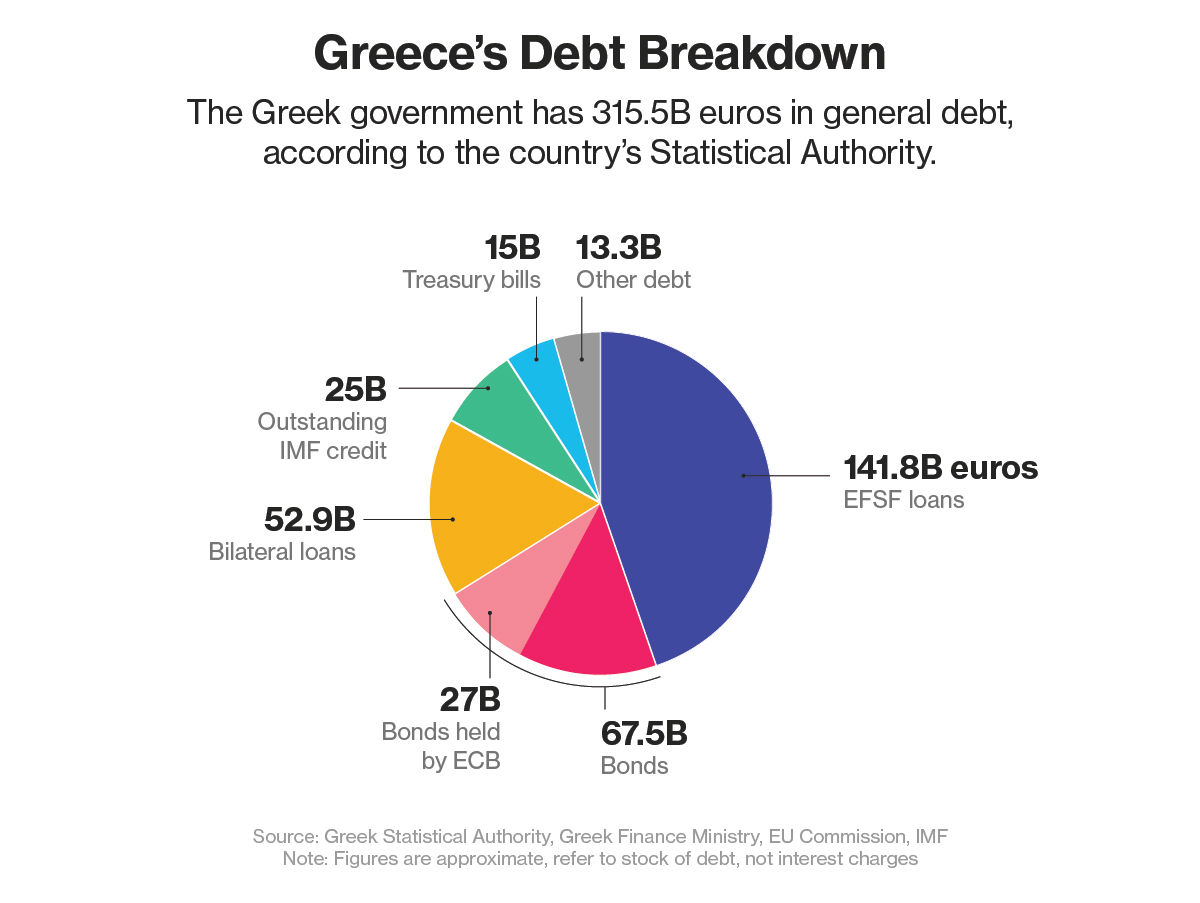Greece stares financial apocalypse in the face, and retreats
By Remy Davison, Monash University
Crisis postponed. On Friday, Greece, the European Union (EU) and the International Monetary Fund (IMF) brokered a four-month extension of bailout loans to the newly-installed government of Alexis Tsipras.
Greece’s bureaucrats now have just 48 hours – until 23 February – to pull together a list of reform proposals. These must be approved by the Eurogroup, comprising all of the eurozone’s finance ministers.
Since the Syriza coalition’s election in January this year, Prime Minister Tsipras and his finance minister, ex-Sydney University economist Yanis Varoufakis, have engaged in a tough, no-compromises approach to their EU partners.
But the harsh reality of politics meant compromise was inevitable. Unsurprisingly, the weaker player – Athens – ultimately retreated, unwilling to pull the trigger that would usher in a financial apocalypse.
Thus, Tsipras and Varoufakis find themselves in a most unenviable position: on the one hand, they must deliver some kind of victory to placate their supporters at home. But, on the hand, both men must know the painful reality: resistance is futile.
Regardless of how Varoufakis paints this internecine European struggle – making economic policy as if people matter – the irresistible logic of the situation is that Greece has scarcely any room for manoeuvre, and the most Tsipras and Varoufakis can hope for are minor concessions and weekend extensions. Which is precisely what happened this week.
Zero option
The stand-off between Greece and Europe’s paymaster, Germany, which has insisted upon strict conditionality for the €240 billion bailouts obtained by Athens during the multiple 2009–12 eurozone crises, ultimately led to the rise of Syriza as a domestic political force.
In 2005, Syriza could barely attract 4% of the electoral vote. Seven years later, the Tsipras-led Syriza narrowly lost the 2012 election. Crumbling support for New Democracy, led by conservative Antonis Samaras, meant Tsipras was effectively prime minister-in-waiting, as voters turned decisively against Samaras’ harsh austerity regime. By May 2014, the European Parliamentary elections confirmed the groundswell of support for Tsipras and Syriza.
In December 2014, Syriza forced an early election by orchestrating a minor constitutional crisis. Tsipras swept to power in January this year, promising an end to austerity and renegotiation of the bailout condition, while pledging that Athens would remain in the eurozone.
This final point is critical: at no point have Tsipras or Varoufakis ever suggested Greece would exit the eurozone. Nor have they indicated any desire to withdraw from the EU. The reasons are obvious: since 1981, with one exception, Greece has been a net recipient of transfers from the EU budget. In 2013, Athens received over €7 billion euro, while paying in less than €2 billion. These fiscal transfers range from agricultural subsidies to regional development funding.
But perhaps more importantly, Germany is the largest net contributor to the EU budget, paying almost €30 billion in 2013. And it is Germany’s massive current account surplus that allows its banks to be the eurozone’s largest creditor institutions.
Thus, it is scarcely surprising that Berlin not only wants the biggest say over how the EU budget is disbursed, it also has by far the greatest influence over eurozone policy, which means Greek politicians will be forced to convince sceptical German policy makers that Syriza will honour the bailout conditions signed by previous governments.
The German conundrum
The most implacable obstacle in Tsipras’ and Varoufakis’ path is Wolfgang Schaeuble, former tax inspector, and Germany’s iron minister of finance. Varoufakis’ and Schaeuble’s relationship did not begin well. At their first summit, Schaeuble said the two had “agreed to disagree". Varoufakis swiftly countered that they did not even agree on that.
A note of caution: if you think Germany speaks with one voice on Greece and the eurozone crisis, think again. Since the 1990s, German institutions and political parties have been torn asunder by the divisions caused by what former EU monetary affairs official Bernard Connolly labelled “the dirty war for Europe’s money".
As Connolly notes, Europe can have a “transfer union” (in which Germany pays other states’ welfare bills via fiscal disbursements) or it can have a “fiscal union”, where EU member states follow a German system of fiscal confederalism characterised by disciplined monetary policy, mandatory low-inflation targets and strictly-policed public deficits and borrowing.
This is Germany’s Pareto-optimal model of how a European monetary and fiscal system should operate. It has been articulated ad nauseam by conservative economists for over two decades. Yet, it exists only in theory. But in 2012, Europe moved a cautious step closer to that model with the promulgation of the Fiscal Compact (in force 2014).
However, Germany is divided into at least three camps: anti-euro currency crusaders (mostly university professors and their comrades at the Bundesbank); reluctant participants in the eurozone (the now politically-irrelevant Free Democrats); and those that drove Germany away from the all-conquering deutschmark to embrace the euro currency union in the first place: German industry.
The latter group are the most important. German governments never do anything without consulting industry first, a situation that hasn’t really changed since Frederick the Great. In the global recession of the early 1990s, German industry nearly went broke as the deutschmark (DM) towered over its EU and North American counterparts.
The bill for German unification and the refurbishment of east Germany was DM3 trillion (six times the Bundesbank and the Finance ministry’s original estimate). Daimler-Benz, Germany’s largest industrial combine, gazed into the abyss in 1994; BMW sank billions into ill-considered British automotive ventures and faced huge losses by 1999, the euro currency’s first year of operation.
The chief problem was the exchange rate: the strong DM caused German wage bills to skyrocket, rendering exports uncompetitive. What was needed was an internal devaluation to decrease the cost of German wage labour and reduce the global price of German exports. The euro worked spectacularly well in this respect, losing 30% of its value during its first 18 months of operation (1999–2001). Furthermore, the extension of the EU Single Market to eastern Europe from 2004 saw Germany invest heavily in industrial plant in the EU’s eastern periphery, thus deriving innumerable benefits from low-wage, skilled-labour economies situated within easy reach of the German border.
But the euro had precisely the opposite effect upon Greece when it acceded to the eurozone in 2001. It caused an internal appreciation, meaning Greeks suddenly gained considerably greater purchasing power than they had enjoyed under the drachma. The euro also meant the public and private sectors could borrow in both Eurobond and third-country markets at much lower rates of interest. Markets also assumed there would be no sovereign defaults as the European Central Bank (ECB) could act as the lender of last resort, despite the fact that the ECB’s charter expressly forbids this role. Consequently, this provided an incentive to predominantly French and German banks to lend to Greece and the rest of the EU’s southern periphery: Spain, Portugal, Italy and Ireland.
This is why Germany will not and cannot afford to allow the eurozone to collapse. Quite simply, it is immersed in the politics of national interest. Instead of off-loading the PIIGS in 2012 and cutting its losses, Berlin responded, belatedly, with due diligence: strict austerity underpinning bailout conditions; a fiscal compact; a financial transaction tax; and, reluctantly, with misgivings, quantitative easing by the ECB.
No Grexit?
Despite the re-emergence of rumours of a “Grexit”, the news of Greece’s imminent departure from the eurozone has been greatly exaggerated. This is not to say that an orderly exit by Greece could never occur in the future, but it is unlikely precisely because it is in neither Germany nor Greece’s interest for a rupture in the eurozone to occur. This is why the Germans and the French, whose private bank leverage as a proportion of GDP dwarfed that of Lehman’s or Bear Stearns, could not countenance the implosion of the EU currency union in 2012.
First, Greece will not leave the eurozone voluntarily. No Syriza or New Democracy politician is advocating that. Bundesbank officials may cattily brief journalists that it is only a matter of time before Greece is unceremoniously ejected, but the Bundesbank detests the finance ministry, while institutional resentment of the disappearance of the DM in 1999, and its consequential impact upon the Bundesbank’s loss of prestige runs deep in Frankfurt.
Second, a key point worth repeating is that nothing has changed in the EU treaties since the international financial crisis struck the eurozone in 2009. There is no legal mechanism under Article 50 of the Lisbon Treaty that permits a member state to exit the eurozone, unless that state withdraws altogether from the EU. No state has ever withdrawn from the EU.
Third, there is another reason why Greece has no incentive to abandon the euro system and return to the drachma. Fear of a stalemate between Syriza and the Troika has seen Greek business and investors quietly transferring over €2 billion per day in deposits out of Greek financial institutions. The reason is that if a compromise is not reached over the coming months, Greek banks will run out of cash, leading to a shutdown of the financial system. Even more sobering would be the fact that 25% unemployment, a lost youth generation, slashed pensions, structural reform and five years of painful austerity would have all been for nought.
Tsipras and Varoufakis know this only too well. They were elected to save Greece. Not to bury it.

This article was originally published on The Conversation. Read the original article.

 The Greek government in April issued an emergency decree ordering local and regional governments and public agencies to hand cash to the central Bank of Greece so it could pay wage and pension obligations and make an imminent repayment to the IMF.
The Greek government in April issued an emergency decree ordering local and regional governments and public agencies to hand cash to the central Bank of Greece so it could pay wage and pension obligations and make an imminent repayment to the IMF.
